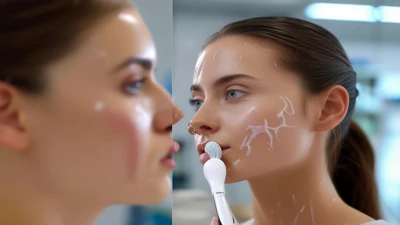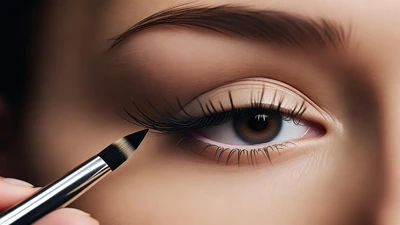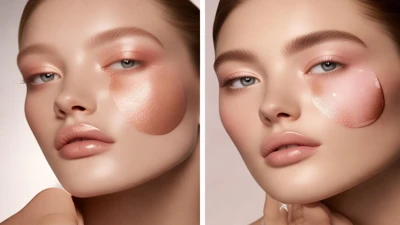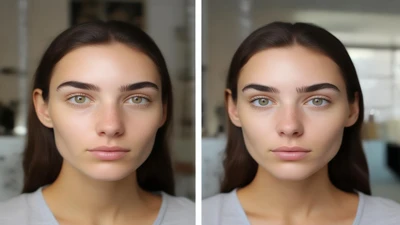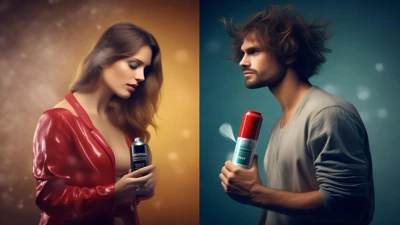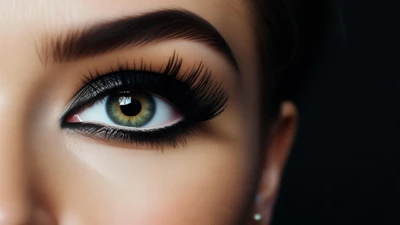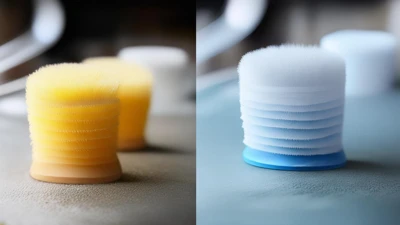
Synthetic vs Natural Fragrances: Which Poses Less Risk to Skin?
The worldwide fragrance industry surpassed $40 billion in 2023. The question remains: Which is safer for skin—natural or synthetic scents? It is common to see natural fragrances promoted as inherently safe. In contrast, their synthetic counterparts are seen as artificial and potentially unsafe. The truth is that it's not so clear-cut. This essay explores the safety of natural and synthetic fragrances using scientific evidence, case studies, and regulatory guidelines, while also reflecting on the cultural and emotional aspects of the discussion.
1. The Difference Between Natural and Synthetic Perfumes
Where Do Natural Fragrances Come From? What Are They Composed Of?
Natural fragrance production relies on materials like essential oils from plants and other organic substances.
These compounds can be extracted using steam distillation. They can also be obtained via cold pressing or solvent extraction. Limonene is a terpene found in citrus oils. It is commonly used as a natural fragrance component.
Two Kinds of Synthetic Fragrances Are Discussed. Their Chemistry and Innovation Are Highlighted.
Artificial fragrances are crafted in laboratories. Their purpose is to simulate nature's scents or innovate with new ones.
Diethyl phthalate works as a solvent and fixative. It is one example.
Synthetic musks provide another.
Aldehydes are organic compounds that add unique scents to perfumes.
The sharp and pleasant smell of Chanel No. 5).
These ingredients are consistent. They last longer and are more cost-effective than natural options.
I tend to choose products marked as 'natural' because I assume they are less harsh. Using a lavender oil-based lotion led to a rash. As a result, I started challenging this belief.
2. What Happens When Chemical Compositions Meet the Skin
Natural Fragrances: Their Complexity and Volatility
There are hundreds of volatile organic compounds (VOCs) present in natural fragrances. Among the components of lavender oil are linalool and linalyl acetate. Oxidation occurs when these compounds are exposed to air. This leads to the production of allergenic compounds such as hydroperoxides. As per a 2016 study in Contact Dermatitis, allergic reactions occurred in 2-3% of the population exposed to oxidized limonene.
Exploring Stability and Standardization in Two Synthetic Fragrances
Purification and stabilization processes make synthetic fragrances less prone to oxidation. Many people develop allergies to specific synthetics. Benzyl salicylate is among them. According to the SCCS, there are 26 allergens linked to fragrances. These have been required to be labeled in EU cosmetics since 2012.
A study published in 2019 showed a 30% growth in fragrance-related dermatitis cases over twenty years. Both types of ingredients—natural and synthetic—were cited as causes.
3. Dermatological Perspectives
The extent of allergenicity and the percentage of sensitization
Globally, fragrance allergies occur in 1-4% of the population. Higher rates are seen in individuals who use skincare products. People with sensitivities may react to balsam of Peru or synthetic musks, based on recent patch testing data.
As per a 2023 study in Dermatitis, 12% of participants exhibited reactions to natural essential oils, while 9% exhibited reactions to synthetic oils.
The Oakmoss Dilemma: A Look at Two Cases
Oakmoss absolute, which is a natural lichen extract valued in perfumery, contains atranol and chloroatranol. These are strong allergens that have been banned in the EU since 2022. Naturals may seem eco-friendly, but this case demonstrates they can carry significant dangers.
My dermatologist once said, 'Nature isn't harmless—it's simply chemistry humans didn't create.' I used to think 'natural' meant safe, but now I see things differently.
4. The Environment and Rules That Need Attention
Ecological Impact
The production of natural fragrances usually involves resource-heavy farming practices. One example is that 1 kg of rose oil takes 3-4 tons of petals to produce. This contributes heavily to water and land resource demands. Although synthetics require a lot of energy to produce, they can help ease the pressure on agriculture. Aquatic life is affected as synthetic musks persist and gather in water sources.
Regulatory Frameworks
Under the EU's REACH regulation, both natural and synthetic fragrances are regulated. HICC was banned in 2019. In contrast, the USA FDA does not require labeling of fragrance allergens, which keeps consumers uninformed.
The EWG's 2021 report highlighted 40 fragrance chemicals in American products. Of these, 17 are derived naturally and 23 are synthetic. Their toxicity levels are alarming.
5. How Consumers Perceive Products and Markets Evolve
The Appeal of 'Natural'
The Natural Marketing Institute found in a 2020 survey that 68% of Americans choose 'natural' personal care products. This choice is driven by doubts regarding synthetic chemical ingredients. Lush and Burt's Bees are brands that benefit from this trend. However, some people experience allergies due to natural ingredients.
Pretending to Be Environmentally Responsible
The terms 'plant-based' and 'organic' do not always mean free of synthetic additives. In 2022, the FTC issued penalties to four companies. These companies falsely advertised their fragrances as '100% natural'. Synthetic benzyl acetate was found in the products.
Products labeled as green caught my attention, yet I eventually learned of their hidden synthetic elements. This undermines confidence in both natural and synthetic categories.
6. Case Studies: How They Affect the Real World
Tea Tree Oil: Natural Products Can Also Be Unsafe
The antimicrobial qualities of tea tree oil are well-known. However, a 2017 case study linked it to severe dermatitis. Researchers connected the reaction to terpinen-4-ol, which is a compound known for disrupting skin barriers.
Two Reforms for Synthetic Musk Safety
In 2020, the International Fragrance Association (IFRA) placed restrictions on polycyclic musk concentrations. Studies had linked these compounds to endocrine disruption. The ability of regulation to address synthetic risks is illustrated here.
7. Achieving a Safe and Environmentally Sound Approach
Personalized Approaches
Dermatologists suggest doing a patch test on any fragrance, no matter if it's natural or synthetic. Some genetic factors contribute significantly. One example is filaggrin gene mutations that increase sensitivity to fragrances.
Education Is Crucial. Transparency Is Also Essential.
With brands like The Ordinary, you can see exactly why each ingredient is included and its concentration. As a result, people are better informed when choosing products. The EU mandated in 2023 that 61 fragrance allergens must be disclosed. Regulatory bodies should adopt similar clear labeling rules.
Marketing buzzwords are no longer important to me. I prioritize transparency instead. A product's safety is tied to its formulation. It doesn't matter if it's natural or synthetic.
A Word From Beautyvs
Natural and synthetic fragrances cannot be strictly separated. There are safe and dangerous ingredients in both categories. As a result, consumers and the industry need to rethink their approach. Safety relies on thorough testing, strict regulatory oversight, and personalized skincare routines. Advances in science suggest that hybrid formulations could pave the way for the future. Such formulations mix nature's complexity with synthetic accuracy. The goal is to craft fragrances that are gentle and sustainable. Skepticism toward absolutes and promoting transparency continue to be the most reliable methods for handling this aromatic puzzle.







